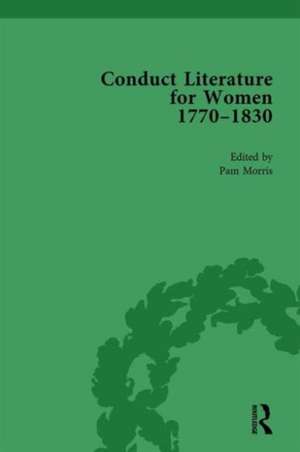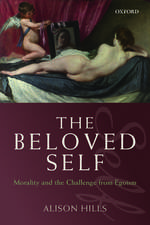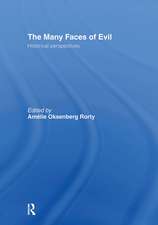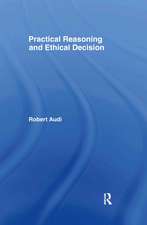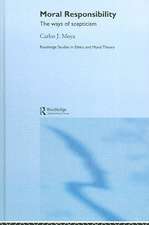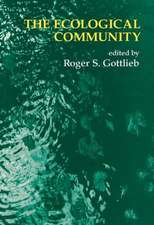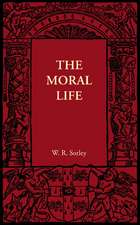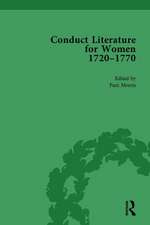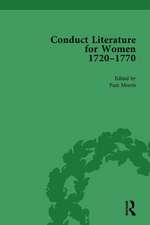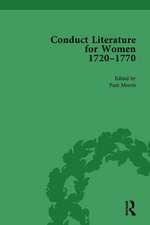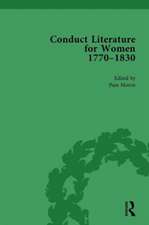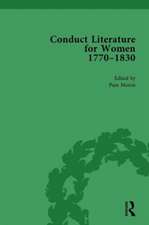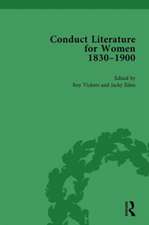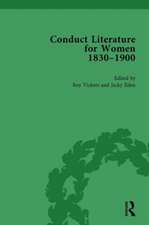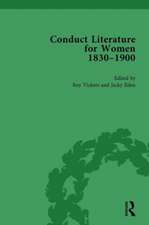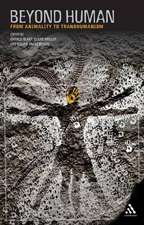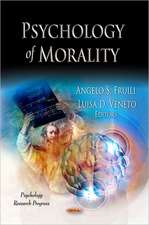Conduct Literature for Women, Part IV, 1770-1830 vol 5
Autor Pam Morrisen Limba Engleză Hardback – iun 2005
Social and literary historians recognise the 1790s as a moment of political crisis and turbulence in British history: the intense reactions in Britain to increasing revolutionary violence in France politicised almost every aspect of cultural life. At the centre of discursive hostilities was the opposition between sentimentality, on the one hand, and rationality, on the other. Two of the most important literary forms utilised for expressing these polemics were novels and treatises on education, as well as conduct writing. Conduct Literature for Women IV, 1770-1830 makes available this body of writing, which has been less well studied in respect to the war of ideas than the former two.
Preț: 473.94 lei
Preț vechi: 688.21 lei
-31% Nou
Puncte Express: 711
Preț estimativ în valută:
90.69€ • 94.93$ • 75.48£
90.69€ • 94.93$ • 75.48£
Carte tipărită la comandă
Livrare economică 31 martie-14 aprilie
Preluare comenzi: 021 569.72.76
Specificații
ISBN-13: 9781138752245
ISBN-10: 113875224X
Pagini: 444
Dimensiuni: 156 x 234 mm
Greutate: 0.45 kg
Ediția:1
Editura: Taylor & Francis
Colecția Routledge
Locul publicării:Oxford, United Kingdom
ISBN-10: 113875224X
Pagini: 444
Dimensiuni: 156 x 234 mm
Greutate: 0.45 kg
Ediția:1
Editura: Taylor & Francis
Colecția Routledge
Locul publicării:Oxford, United Kingdom
Public țintă
Academic and PostgraduateCuprins
Miss S. Hatfield, Letters on the Importance of the Female Sex: with Observations on their Manners, and on Education (1803), Lucy Aikin, Epistles on Women, Exemplifying their Character and Condition in various Ages and Nations (1810), Thomas Broadhurst, Advice to Young Ladies on the Improvement of the Mind and the Conduct of Life, 2nd edn (1810), Editorial Notes
Descriere
Social and literary historians recognise the 1790s as a moment of political crisis and turbulence in British history: the intense reactions in Britain to increasing revolutionary violence in France politicised almost every aspect of cultural life. At the centre of discursive hostilities was the opposition between sentimentality, on the one hand, and rationality, on the other. Two of the most important literary forms utilised for expressing these polemics were novels and treatises on education, as well as conduct writing. Conduct Literature for Women IV, 1770-1830 makes available this body of writing, which has been less well studied in respect to the war of ideas than the former two.
